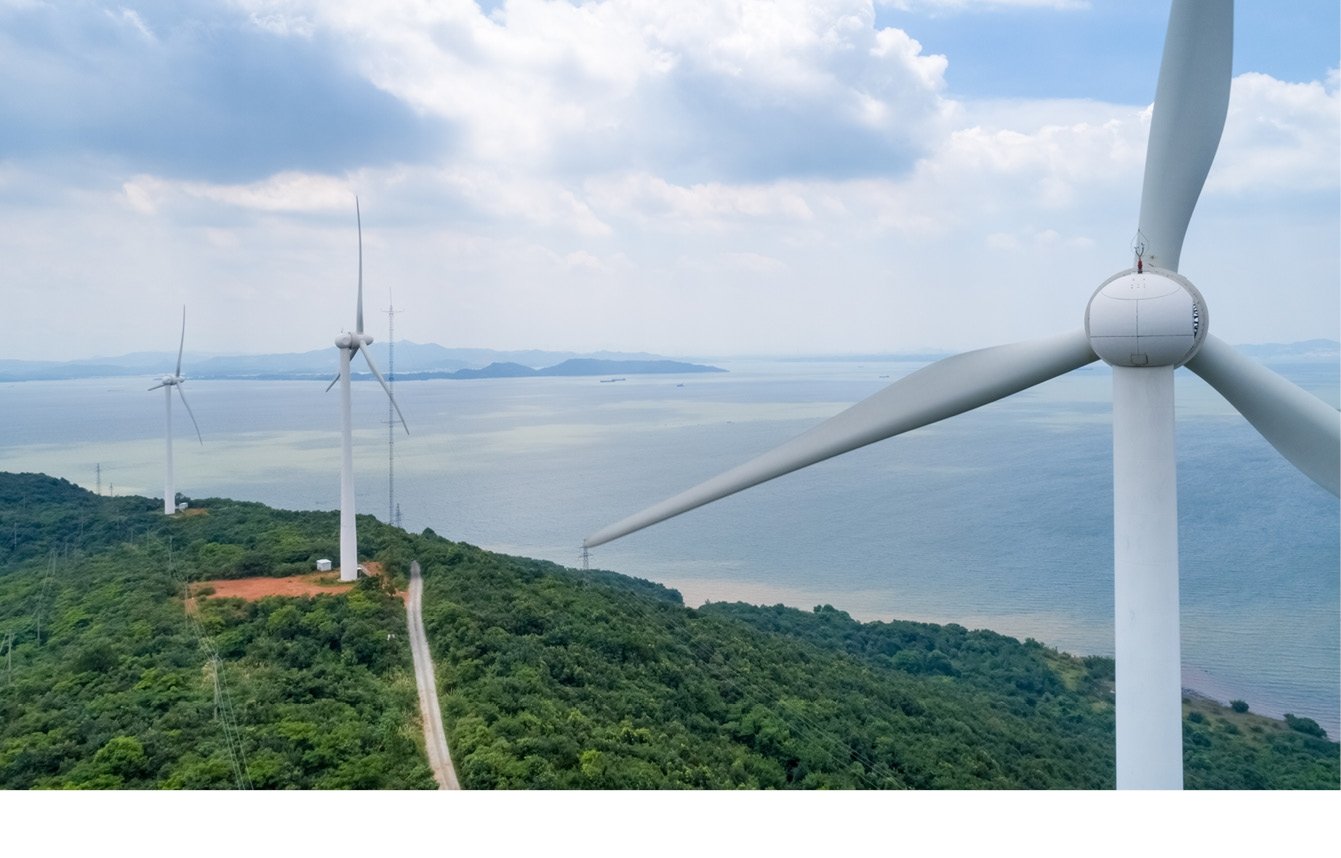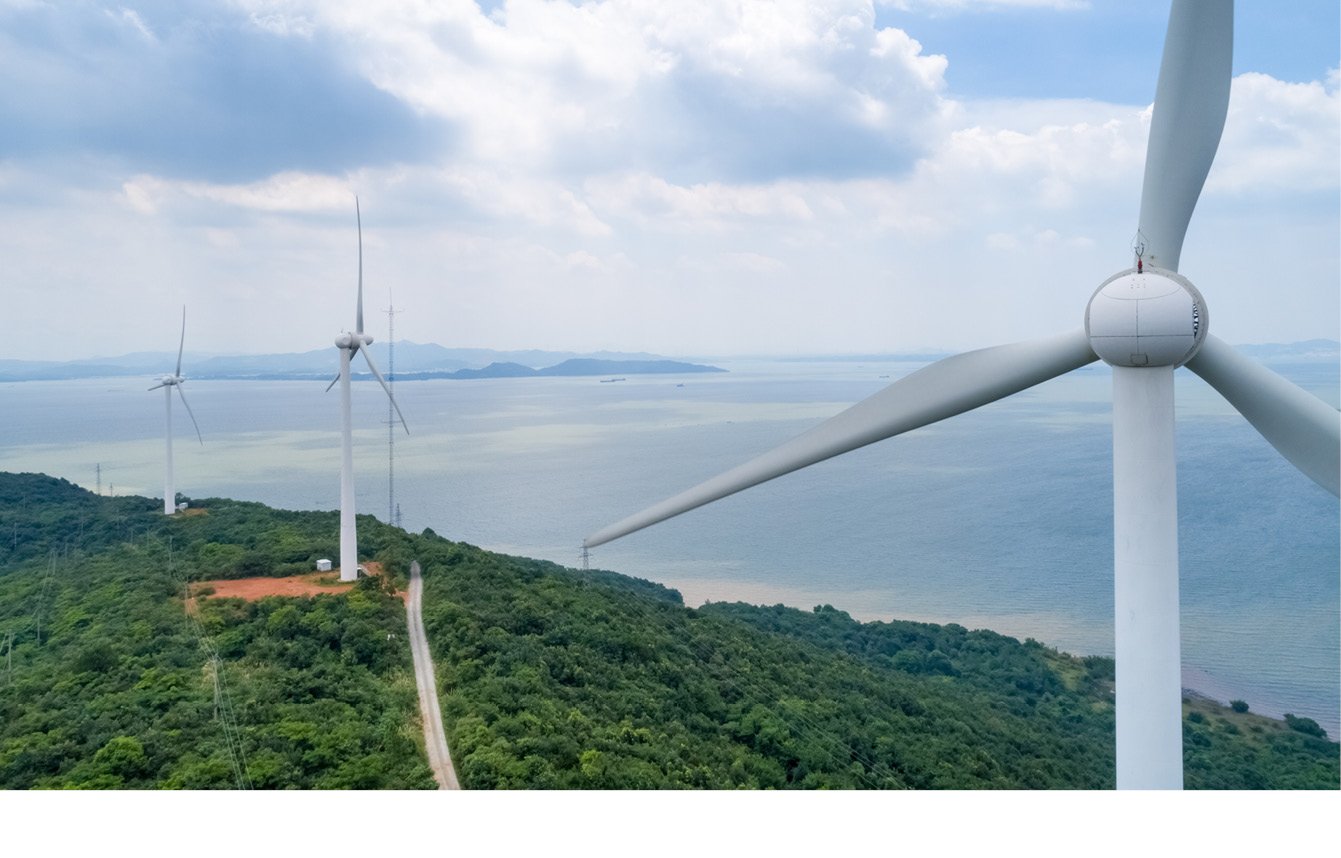Brazil: A new dawn?

Brazilian lawyers could benefit from a rise in renewable energy project work, but only if developers get better access to finance
 Law firms in Brazil are hoping that the new government’s plan to grow the wind and solar power sector will generate a substantial rise in work, particularly in relation to the financing of projects. However, there are still substantial barriers to the expansion of renewable energy – with developers facing escalating borrowing costs – so lawyers are hoping political changes will see more projects being kick-started, with the result that law firms’ workflow will increase.
Law firms in Brazil are hoping that the new government’s plan to grow the wind and solar power sector will generate a substantial rise in work, particularly in relation to the financing of projects. However, there are still substantial barriers to the expansion of renewable energy – with developers facing escalating borrowing costs – so lawyers are hoping political changes will see more projects being kick-started, with the result that law firms’ workflow will increase.
Brazil has taken major strides in relation to renewable energy, and the incoming government of President-elect Jairo Bolsonaro, who takes office on 1 January 2019, has promised to speed up permitting, which is likely to enable projects to begin operations more quickly, according to lawyers. Renewable energy represented 82 per cent of Brazil’s installed electricity generation capacity in August 2018, according to the energy ministry, with capacity having increased by seven gigawatts over the past year. Hydropower installed capacity stands at 102 gigawatts, followed by biomass with 14 gigawatts, while wind power contributes 12.9 gigawatts to the grid, and solar power makes up 1.6 gigawatts.
The country held its most recent power auction, dubbed A-6, in August of this year. A total of 2.1 gigawatts of capacity was awarded, and this followed an earlier auction in April, which means a strong pipeline of projects is expected to enter operation by 2024.
Brazil’s renewable energy sector had been hindered by the suspension of projects as a result of investigations being conducted in connection with the $9 billion Operation Car Wash money laundering scandal that engulfed many companies. However, the new government is expected to give priority to projects by streamlining permit processes.
“I believe all energy projects will see a major boost in the first couple of years of Bolsonaro’s administration,” says Christian de Lima Ramos, a partner at RZ Advogados. “There is a major backlog of projects that were suspended, those will soon be back on track, either in the hands of their former sponsors, or, more likely, under investors entering into Brazil.” De Lima Ramos continues: “I believe Bolsonaro’s administration will streamline and speed up licensing processes – this is a must in Brazil, as these processes currently take many years.”
De Lima Ramos argues that an acceleration of the permitting process will not be detrimental to the environment. “Creating a more dynamic and streamlined method for licensing does not entail being less protective of the environment and the ecosystem, but the ‘must-do’ factor is cutting the red tape,” he claims. “This is where the new administration will focus its efforts,” he says.
However, even with permits being granted more quickly, the renewable energy sector in Brazil still faces barriers related to financing, according to Débora Yanass, an associate at Tauil & Chequer Advogados, an affiliate of Mayer Brown. “The main challenges for the renewable energy industry are securing competitive financing – given that funds provided by Brazilian development bank BNDES have been reduced – and maximising cost-efficiency and return-on-investment amid a trend of renewable energy price reduction,” she says. Yanass adds that another challenge is “implementing projects within their construction schedules, as well as regulatory risks associated with project revenues that depend on the free market settlement carried out by the electric power sector’s chamber of commerce (CCEE)”.
 De Lima Ramos says renewable energy investors have cause for optimism given that Bolsonaro’s proposal includes supporting the development of new wind and solar projects by expanding the production chain in Brazil. He adds that the new government’s liberal stance will also usher in legal and regulatory changes that will enable the creation of a wholesale power market enabling more customers to choose their power supplier. “The new government is committed to the development of renewable energy, and frequent renewable energy power auctions are key for the development of wind and solar power, which also depends on an increase in power demand,” De Lima Ramos explains.
De Lima Ramos says renewable energy investors have cause for optimism given that Bolsonaro’s proposal includes supporting the development of new wind and solar projects by expanding the production chain in Brazil. He adds that the new government’s liberal stance will also usher in legal and regulatory changes that will enable the creation of a wholesale power market enabling more customers to choose their power supplier. “The new government is committed to the development of renewable energy, and frequent renewable energy power auctions are key for the development of wind and solar power, which also depends on an increase in power demand,” De Lima Ramos explains.
The new government will need to accelerate energy contracting through auctions to meet growing demand, though demand in the short term can be met by existing thermoelectric plants, says José Roberto Oliva Junior, associate at Pinheiro Neto. “We are conducting studies and having discussions with several players in the sector, both developers and financiers, and Brazil has some challenges to overcome so that the lack of energy is not a limiting factor for the country’s growth,” he adds.
Oliva Junior argues the incoming government needs to ensure regulations are more predictable and stable, draw up clearer rules for distributed generation, tie power-purchase agreements to the US dollar, and make better use of capital markets for funding. He also calls on private banks and Brazil’s development bank BNDES to have greater participation in project financing, as well as advocating changes to legislation related to the acquisition of land by foreigners so that rural property acquired for the generation and distribution/transmission of energy are not covered by the current restrictions.
Communities are likely to protest against some projects if the environmental permit process is streamlined, says Oliva Junior. “There could be a few protests at the beginning, but if acceleration is carried out in a responsible and sustainable manner, which we believe is likely to happen, it will be beneficial to the energy sector in general, especially to the renewable energy sector,” he adds. “Accelerating licensing processes does not necessarily mean that the required studies will not be carried out, and it is currently the delay in the issuance of environmental licenses that is greatly delaying the implementation of projects.”
Oliva Junior rejects suggestions that uncertainty among investors could increase as a result of Bolsonaro’s victory. “The market has great expectations regarding the possible beneficial changes in the regulation of the energy sector,” he says. “From what we have seen to date, the new government has been forming a good technical team in several sectors, now we must wait to see the privatisation policies of López Obrador,” Oliva Junior adds. He says the appetite among foreign companies and funds for investments in the Brazilian energy sector has increased substantially since the beginning of 2018, while the coming year is expected to feature notable privatisations, mergers and acquisitions, energy auctions and new domestic and foreign investors.”
 ‘A little vague’
‘A little vague’
Law firms are receiving a significant amount of instructions related to the financing of wind projects as work related to acquisition financing for new projects, specifically debt offerings in the capital markets, according to Paulo Vieira, a partner at Vieira Rezende Advogados. However, she adds Bolsonaro’s proposals are still a “little bit vague”. Vieira continues: “Although during his campaign he mentioned changes to the environmental licensing process, this can create problems with the local population and result in delays in the development of projects. By creating a safe legal environment, investors will feel confident in funding renewable energy projects and the structuring of project finance will be less a challenge than it has been in recent months.”
Tiago Kummel Figueiro, partner at Veirano Advogados, is confident that renewables projects will not face conflicts in Brazil, but adds that hydroelectric projects earmarked for the Amazon rain forest might. “Bolsonaro’s intentions have more to do with big hydroelectric projects in forest areas, which currently face lots of criticism and difficulties related to permits and the settlement of disputes with indigenous communities,” he explains. “If new, big hydroelectric projects are to become more abundant in Brazil as a result, we might see a slow-down in renewable deployment.”
Generally speaking, investors are optimistic about the future of the renewable energy sector under Bolsonaro. “There is some uncertainty regarding the timing for implementing the changes that were discussed in the Ministry of Mines and Energy’s public consultation on the restructuring of the energy sector,” says Kummel Figueiro. “The changes include a discount on the tariff for the use of the transmission and distribution grid by renewable energy generation projects – but, in principle, there would be no impact for the projects already implemented.”
Lawyers are also confident that the electric power auction programme will continue as the government will strive to increase capacity to meet growing demand. Kummel Figueiro says: “One of Bolsonaro’s main objectives is to increase the renewable energy share in the Brazilian matrix.”















